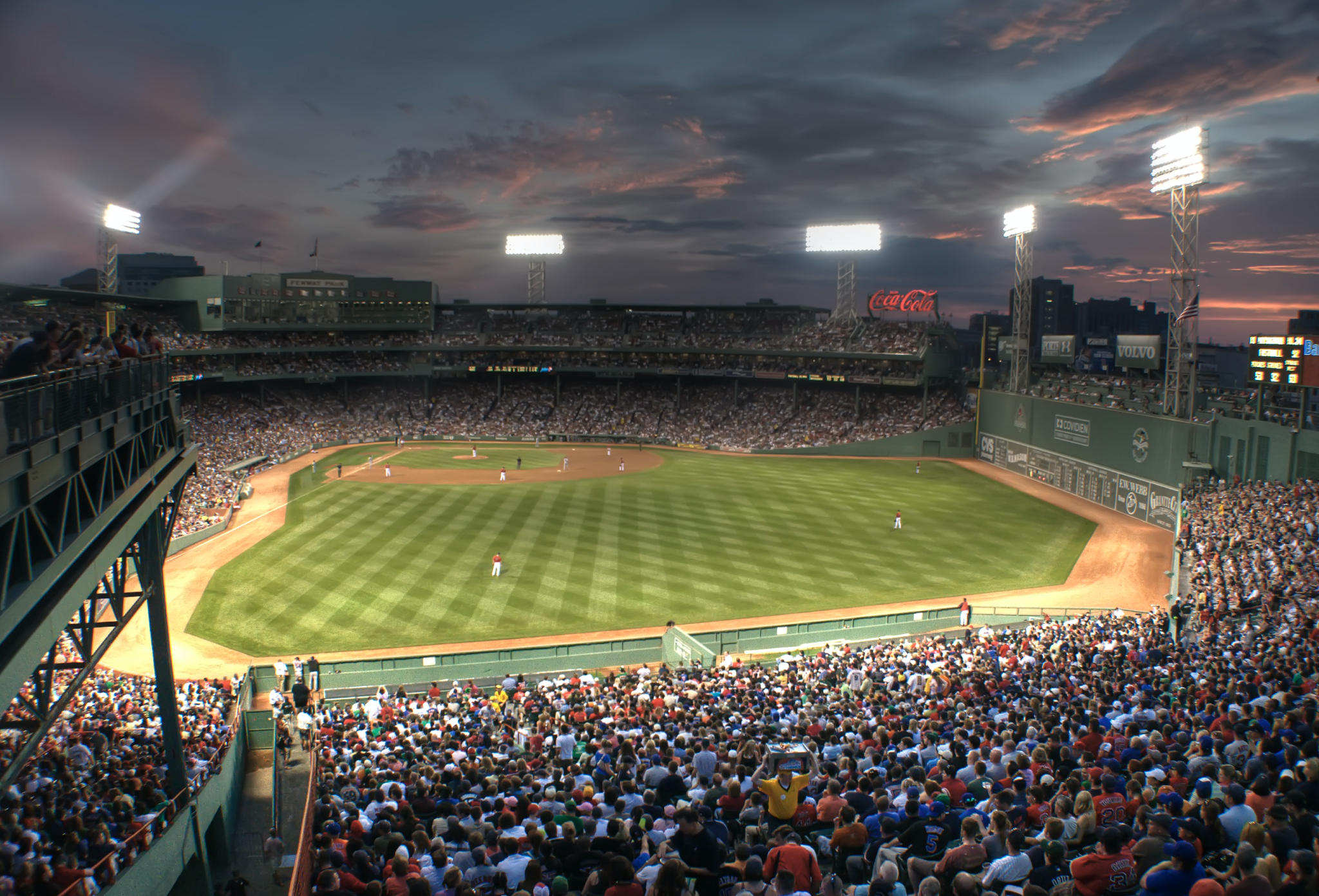
Wikimedia Commons
The next edition of the Yale-Harvard football game is set to take place at Fenway Park. But a week after the announcement of the new venue, the logistics of the event remain a work in progress.
The announcement of the venue change caused a buzz on campus and captured the attention of national sports media as well, with Sports Illustrated, ESPN and others covering the decision. But as the initial excitement settles, questions remain about the rationale of the unexpected switch and how the logistics of game day will play out in Boston.
In a statement to the News, Harvard Associate Director of Athletics Tim Williams said that “further information regarding logistics will be announced in the coming months.”
Fenway Park sits in one of Boston’s most densely populated and traffic-heavy neighborhoods, three miles away from Harvard’s campus. The historic stadium is surrounded by a maze of narrow streets, less ideal for tailgating than the spacious tennis courts at the Yale Bowl or Harvard Stadium.
Reaching Fenway via the Massachusetts Bay Transportation Authority requires a circuitous route starting with the red line and involving a transfer to the green line. The MBTA has experience handling large-scale events like The Game, and it will prepare a plan in advance to help minimize these logistical problems for fans.
Fred Olsen, vice president of special events for Fenway Sports Management, acknowledged that Fenway, Harvard and the city of Boston were still developing a plan to promote the fan experience at The Game.
“We are always tweaking our operational plan when it comes to the nature of the game and the fans,” Olsen said. “There are definitely some unique aspects to this matchup, which we are working on now. [The issues of transportation and tailgating] were raised early on in the discussions with Harvard … We are working on shuttles for Harvard students, and as far as tailgating and pregame hospitality spaces go, we are working with Harvard and the City of Boston for permitting and licensing.”
Talk of holding The Game began in 2016, when FSM approached Harvard’s athletic director, Bob Scalise, about the possibility of playing The Game at Fenway, according to Olsen. Olsen cited the success of the 2015 college football game between Notre Dame and Boston College as one reason FSM decided to hold other football games in Fenway.
In an email to team boosters, Harvard football coach Timothy Murphy said Harvard made the shift in venue because of “potential restoration work” on Harvard Stadium, according to the Harvard Crimson.
As a part of the ten-year plan included in Harvard’s Institutional Master Plan, the football stadium is scheduled for renovation between 2014 and 2018. The renovation plan cites the goals like structural preservation, increased accessibility and more modernized facilities, such as locker rooms, indoor seating and office space. The proposal also includes a decrease in the stadium’s capacity to 22,333 seats.
The beginning of this process started this season when Harvard cordoned off a number of small patches of the stadium to conduct studies on concrete conditions. But next season, the team will play every other home game at their own venue next season, except for the match against Yale. Williamson did not respond to the News’ questions about the renovations.
Fenway has already held multiple college football matchups this year. One of the games featured Ivy League rivals Dartmouth and Brown. Both Brown Director of Athletics Jack Hayes and Director of Varsity Athletics Communications for Dartmouth Rick Bender had only positive remarks to share about their experience at Fenway this year. Neither expressed serious concern about how the event operated, and Bender voiced his support for holding other Ivy League games at the historic ballpark.
In recent months, Olsen said, setting up for football has become more routine for the Park, crediting the stadium’s grounds director for his work ensuring a high-quality playing surface.
Dating back to 1912, Fenway Park is the oldest venue in Major League Baseball.
Caleb Rhodes | caleb.rhodes@yale.edu







